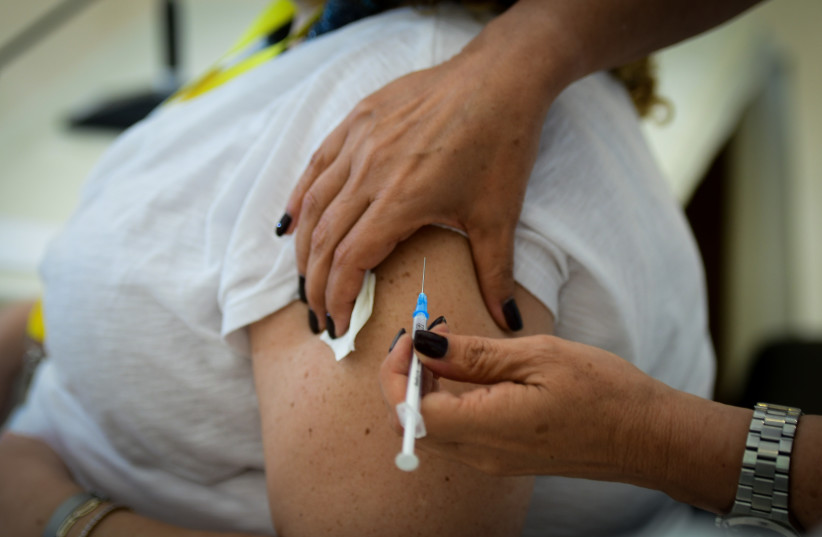Pregnant women transmit more protective antibodies against COVID-19 to their newborns when vaccinated between weeks 27 and 31, a new study by the Hebrew University of Jerusalem and Hadassah-University Medical Center has found.
The study compared antibody transmission rates from mother to baby when the first shot was given during the early part of the expectant mother’s third trimester (weeks 27-31), compared to during the later part of the same trimester (32-36). Babies born to mothers who vaccinated in the early part were conferred better protection – “an important conclusion,” said researcher Dr. Dana G. Wolf, “if one can plan.”
She stressed that women should not delay getting vaccinated if there is a high level of infection in their community.
The study followed 171 women who were admitted for delivery between February and April 2021 at Hadassah. All of them received their vaccines during pregnancy – 83 in the early part of the third trimester and 88 in the later part – and were found to have antibodies against SARS-CoV-2.

The antibodies are passed from the mother to the baby through the placenta.
The study drew two important conclusions:
Antibody levels of newborns whose mothers were vaccinated in the later part of the trimester were 40% lower than those of babies whose mothers were vaccinated earlier.
Antibody levels of the newborns delivered to mothers who were vaccinated earlier were twice as high as their mother’s levels. Babies born to those vaccinated later, were the same as their mother’s.
The study was published in the peer-reviewed journal Clinical Microbiology and Infection. Wolf worked with several other scientists from the hospital and university, as well as a researcher from the University of Haifa.
Pregnant women and their infants are at a higher risk of developing severe COVID-19, according to multiple studies. The study noted that although children tend to have more mild cases of the virus, this is not the case with infants, who tend to develop more severe infection and who are not eligible for vaccination.
In Israel, during the third wave, there was an influx of unvaccinated pregnant women who were admitted to the intensive care unit due to the virus, many of whom were forced to deliver their babies prematurely, putting them at risk. There were also cases of stillbirths linked to COVID.
Both the Pfizer and the Moderna mRNA vaccines have been found to be safe for fertile and pregnant women. The World Health Organization has strongly recommended pregnant women get inoculated.
A previous study by the same research team found that antibodies were passed from mother to baby during the third trimester. The goal of this study was to determine whether there was a more optimal time during the final stretch.
The researchers are also evaluating the impact of being vaccinated in the first and second trimesters, Wolf said, but that data is still under peer review and will only be released soon.
The team is also monitoring the babies to see if their antibodies wane over time.
